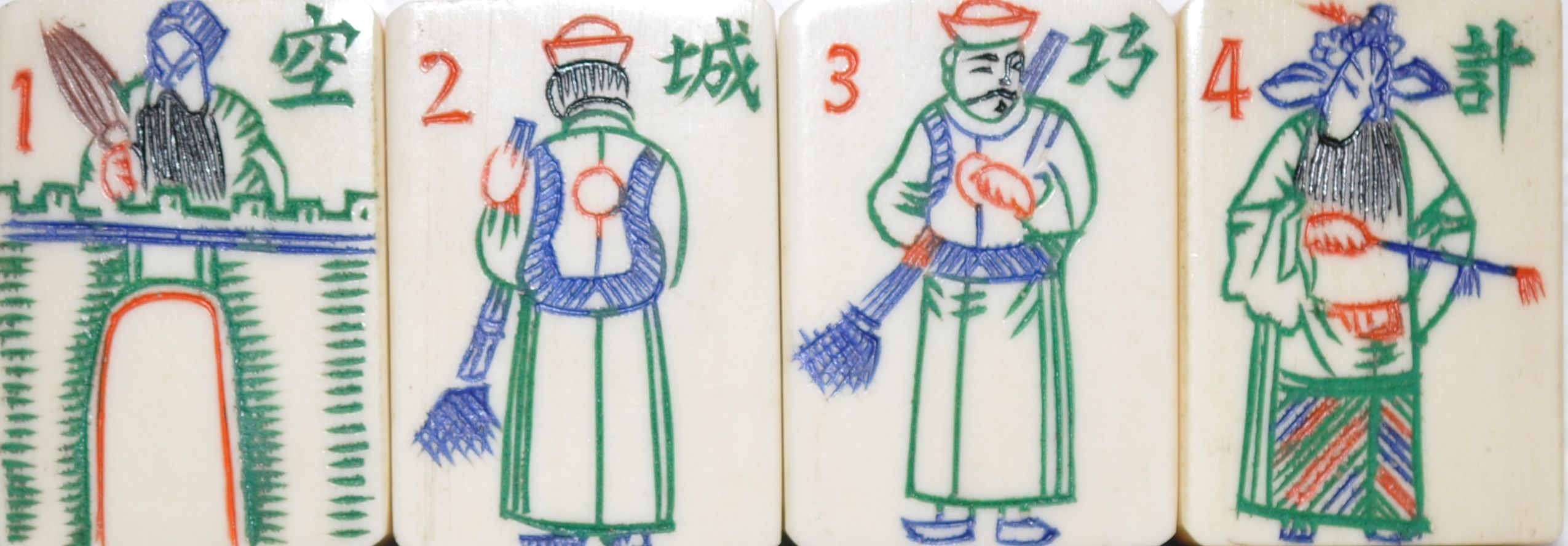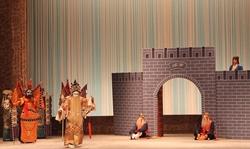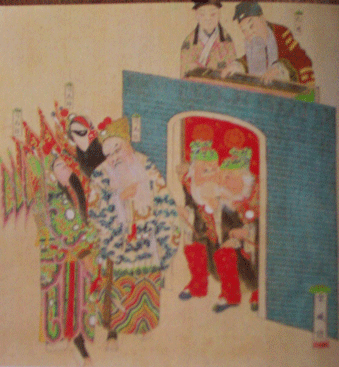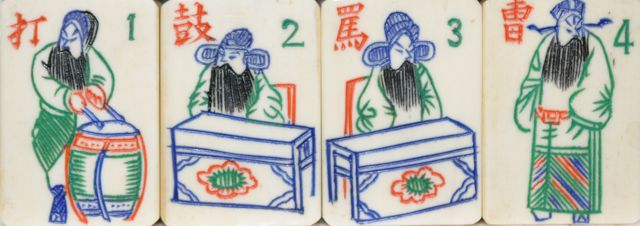 You will often see tiles with these scenes on some of the older bone and bamboo sets. These scenes refer to the Ruse of the Empty City, a story from the Romance of the Three Kingdoms. Zhuge Liang, the Prime Minister of Shu State, was in a terrible situation. He had sent the army to defend one of the cities in his territory, but heard the enemy was on the march, and nearing his city. He thought quickly and decided to act as if the city was well defended. He put himself on the city wall, playing music with two other people, and he ordered the people left in the city, mostly old men, to sweep the streets. (He told them there were soldiers scattered hiding everywhere.) When the enemy arrive at the city, they sensed a rap, because surely no one could look so untroubled as Zhuge Liang unless there was a trap. The enemy turned around, never entering the city. On the tiles you will see Zhuge Liang, playing an instrument atop the city wall, a drummer, and some older men sweeping the streets.
You will often see tiles with these scenes on some of the older bone and bamboo sets. These scenes refer to the Ruse of the Empty City, a story from the Romance of the Three Kingdoms. Zhuge Liang, the Prime Minister of Shu State, was in a terrible situation. He had sent the army to defend one of the cities in his territory, but heard the enemy was on the march, and nearing his city. He thought quickly and decided to act as if the city was well defended. He put himself on the city wall, playing music with two other people, and he ordered the people left in the city, mostly old men, to sweep the streets. (He told them there were soldiers scattered hiding everywhere.) When the enemy arrive at the city, they sensed a rap, because surely no one could look so untroubled as Zhuge Liang unless there was a trap. The enemy turned around, never entering the city. On the tiles you will see Zhuge Liang, playing an instrument atop the city wall, a drummer, and some older men sweeping the streets.
Here is a link to the story:
http://www.chinahighlights.com/travelguide/beijing-opera/the-ruse-of-the-empty-city.htm
Here is a scene taken from the following website
www.silkqin.com

And above is a photo of the scene in a Chinese opera, taken from the China highlights website linked above.
The following addition was written by Ray Heaton, who translated the words on the tiles and provided the story information. Thank you, Ray.


